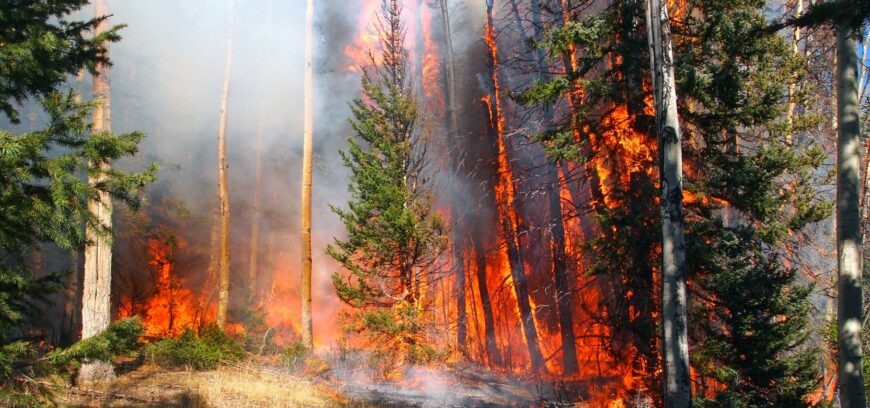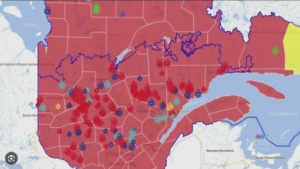
Update on Canadian Wildfires
Here at My Hunter, we thought it was time for an update on Canadian wildfires. This year’s fires have set another record: The most wildfire smoke emissions ever recorded in a single year.
Data collected by CAMS (the Copernicus Atmosphere Monitoring Service) revealed that this year’s wildfires raging throughout Canada have released roughly 290 megatonnes of carbon emissions through August 1. This year-to-date measurement more than doubles the previous annual record of 138 megatonnes set in 2014, according to the agency. CAMS began measuring carbon emissions produced by wildfires back in 2003.
While wildfires have raged throughout the world in recent months, CAMS revealed that Canada’s fires are responsible for more than one-quarter of the world’s total fire-carbon emissions this year.
Update on Canadian Wildfires – A Brutal Fire Season
Nearly 40 per cent of all the land burned across Canada this year was consumed in the raging fires that struck northern Quebec in May and June. Quebec’s fires consumed more than 5.1 million hectares of land, an expanse of real estate that nearly equals the size of Nova Scotia. Nova Scotia itself has seen its share of wildfires this year as well. The province battled its largest wildfire on record in early June when a blaze in Shelburne County, about 200 km southwest of Halifax, grew to consume 23,525 hectares and took two months for crews to extinguish. The historic fire in Shelburne County was one of several large fires across the province that destroyed hundreds of homes and displaced tens of thousands of people at the height of the evacuations.
An International Effect
Northern Quebec’s intense fires resulted in prolific smoke choking vast swaths of Canada and the U.S., bringing historically bad air quality to tens of millions of people in the GTA, New York City, and Washington. The smoke from Quebec’s fires even crossed the Atlantic to pollute the skies of western Europe.

While the smoke flowing from northern Quebec was the primary culprit behind some of this year’s worst air quality, thick smoke from the fires burning throughout Western Canada and the territories have contributed to the vast plumes of air pollution trekking across the country and south of the border this season. The air quality in Yellowknife, for example, was unhealthy or hazardous for much of July due to fires in the region.
The news may be grim, but we thought this update on Canadian wildfires was an important topic of discussion for homeowners. If you need to make a home insurance claim at some point this year, speak with your insurance broker – They can advise you of the best course of action to follow. They can also answer any questions or concerns you may have, along with aiding throughout the home insurance claims process. To ask us for professional advice, reach out to us through our contact page or call us at 1-877-454-4476.
 1-877-454-4476
1-877-454-4476
